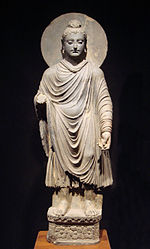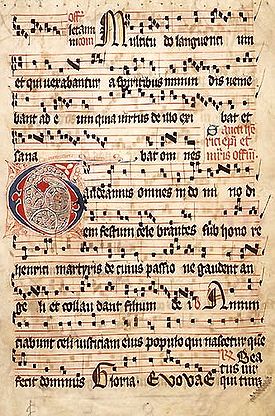- Portal:Religion
-
- Wikipedia portals:
- Culture
- Geography
- Health
- History
- Mathematics
- Natural sciences
- People
- Philosophy
- Religion
- Society
- Technology
 Religion: Adventism · Ahmadiyya · Anabaptism ·
Religion: Adventism · Ahmadiyya · Anabaptism ·  Anglicanism · Arminianism · Ayyavazhi · Bahá'í Faith · Baptist · Bible · Book of Mormon ·
Anglicanism · Arminianism · Ayyavazhi · Bahá'í Faith · Baptist · Bible · Book of Mormon ·  Buddhism · Calvinism · Christadelphians ·
Buddhism · Calvinism · Christadelphians ·  Christianity · Christianity in China · Christianity in India · Confucianism · Creationism · Eastern Christianity · Falun Gong · Greek mythology · Heathenism ·
Christianity · Christianity in China · Christianity in India · Confucianism · Creationism · Eastern Christianity · Falun Gong · Greek mythology · Heathenism ·  Hinduism · Hindu Mythology ·
Hinduism · Hindu Mythology ·  Islam · Jainism · Judaism · Kabbalah · Latter‑day Saints · Lutheranism · Mahayana Buddhism · Methodism · Mythology · Nontheism · Occult · Oriental Orthodoxy · Pope · Roman Catholicism · Saints ·
Islam · Jainism · Judaism · Kabbalah · Latter‑day Saints · Lutheranism · Mahayana Buddhism · Methodism · Mythology · Nontheism · Occult · Oriental Orthodoxy · Pope · Roman Catholicism · Saints ·  Scientology · Shinto · Sikhism · Spirituality · Sufism · Syriac Christianity · Taoism · Tibetan Buddhism · Vajrayana Buddhism · Wicca · Zoroastrianism
Scientology · Shinto · Sikhism · Spirituality · Sufism · Syriac Christianity · Taoism · Tibetan Buddhism · Vajrayana Buddhism · Wicca · Zoroastrianism- For a topic outline on this subject, see Outline of religion
Main page Categories, Topics & Featured content WikiProjects & Things you can do The Religion Portal
Religion is the adherence to codified beliefs and rituals that generally involve a faith in a spiritual nature and a study of inherited ancestral traditions, knowledge and wisdom related to understanding human life. The term "religion" refers to both the personal practices related to faith as well as to the larger shared systems of belief.In the larger sense, religion is a communal system for the coherence of belief—typically focused on a system of thought, unseen being, person, or object, that is considered to be supernatural, sacred, divine, or of the highest truth. Moral codes, practices, values, institutions, traditions, and rituals are often traditionally associated with the core belief, and these may have some overlap with concepts in secular philosophy. Religion can also be described as a way of life.
The development of religion has taken many forms in various cultures. "Organized religion" generally refers to an organization of people supporting the exercise of some religion with a prescribed set of beliefs, often taking the form of a legal entity (see religion-supporting organization). Other religions believe in personal revelation and responsibility. "Religion" is sometimes used interchangeably with "faith" or "belief system," but is more socially defined than that of personal convictions.
More about religion... Selected article
Greco-Buddhism is the cultural syncretism between Hellenistic culture and Buddhism, which developed over a period of close to 800 years in Central Asia in the area corresponding to modern-day Afghanistan and Pakistan, between the 4th century BCE and the 5th century CE. Greco-Buddhism influenced the artistic (and, possibly, conceptual) development of Buddhism, and in particular Mahayana Buddhism, before it was adopted by Central and Northeastern Asia from the 1st century CE, ultimately spreading to China, Korea and Japan.The interaction between Hellenistic Greece and Buddhism started when Alexander the Great conquered Asia Minor and Central Asia in 334 BCE, crossing the Indus and Jhelum rivers, and going as far as the Beas, thus establishing direct contact with India, the birthplace of Buddhism. Alexander founded several cities in his new territories in the areas of the Oxus and Bactria, and Greek settlements further extended to the Khyber Pass, Gandhara and the Punjab. These regions correspond to a unique geographical passageway between the Himalayas and the Hindu Kush mountains, through which most of the interaction between India and Central Asia took place, generating intense cultural exchange and trade.
Selected picture
Gregorian chant is the central tradition of Western plainchant, a form of monophonic, unaccompanied sacred song of the Roman Catholic Church.
Selected religious figure or deity
Krishna (कृष्ण in Devanagari, kṛṣṇa in IAST ), according to various Hindu traditions, is the eighth avatar of Vishnu. In the Bhagavad Gita (e.g., 10.15 and 15.19), he is seen as the Supreme Person and the highest God. Thus, according to traditions such as Gaudiya Vaishnavism, he is the origin of all other incarnations.
Krishna and the stories associated with him appear across the spectrum of Hindu philosophical and theological traditions. Though they sometimes differ in details reflecting the concerns of a particular tradition, some core features are shared by all. These include a divine incarnation, a pastoral childhood and youth, and life as a heroic warrior and teacher. The immense popularity of Krishna in India also meant that various non-Hindu religions that originated in India had their own versions of him.
Did you know...
- ...that there is no known ancient document which claims Mary Magdalene was the wife of Jesus?
- ...that the Varanasi is the most holy city in Hinduism irrespective of denomination?
- ...that Indonesia is currently the most populous Islamic country with 213 million followers?
- ...that the English folkloric figure Herne the Hunter is etymologically related to the Celtic god Cernunnos?
News
Latest religion/spirituality Wikinews- November 9: Indian court hands out 31 life sentences for race riot murders
- October 19: Kenya troops enter Somalia after kidnappings
- September 30: Afghan employee kills U.S. citizen at Kabul CIA base
- September 28: Saudi Arabian women gain right to vote, run in elections
- August 18: Former Governor-General of New Zealand Paul Reeves dies aged 78
On this day...
Selected quote
Selected scripture
The Tao Te Ching (Chinese: 道德經 [
 Listen (help·info)]), roughly translatable as The Book of the Way and its Virtue, is a Chinese classic text. According to tradition, it was written around 600 BCE by the Taoist sage Laozi (or Lao Tzu, "Old Master"), a record-keeper at the Zhou Dynasty court. A careful reading of the text, however, suggests that it is a compilation of maxims sharing similar themes. The text's authenticity, authorship, and date of composition or compilation are still debated.
Listen (help·info)]), roughly translatable as The Book of the Way and its Virtue, is a Chinese classic text. According to tradition, it was written around 600 BCE by the Taoist sage Laozi (or Lao Tzu, "Old Master"), a record-keeper at the Zhou Dynasty court. A careful reading of the text, however, suggests that it is a compilation of maxims sharing similar themes. The text's authenticity, authorship, and date of composition or compilation are still debated.The Tao Te Ching is fundamental to the Taoist school (Daojia 道家) of Chinese philosophy and strongly influenced other schools as well, such as Legalism and Neo-Confucianism. This ancient book is also central in Chinese religion, not only for Taoism (Daojiao 道教) but Chinese Buddhism, which when first introduced into China was largely interpreted through the use of Taoist words and concepts. Many Chinese artists, including poets, painters, calligraphers, and even gardeners have used the Tao Te Ching as a source of inspiration. Its influence has also spread widely outside East Asia, aided by hundreds of translations into Western languages.
Related portals
Ahmadiyya Anglicanism Atheism Ayyavazhi Bahá'í Faith Bible Book of Mormon Buddhism Catholicism Christianity Confucianism Creationism Eastern Christianity Hinduism Islam Jainism Judaism Kabbalah Latter-day Saints Mythology Occult Oriental Orthodoxy Pope Saints Shinto Sikhism Spirituality Taoism Wicca Zoroastrianism Associated Wikimedia
Categories:- Religion portal
- Religion
- Religion portals
Wikimedia Foundation. 2010.














